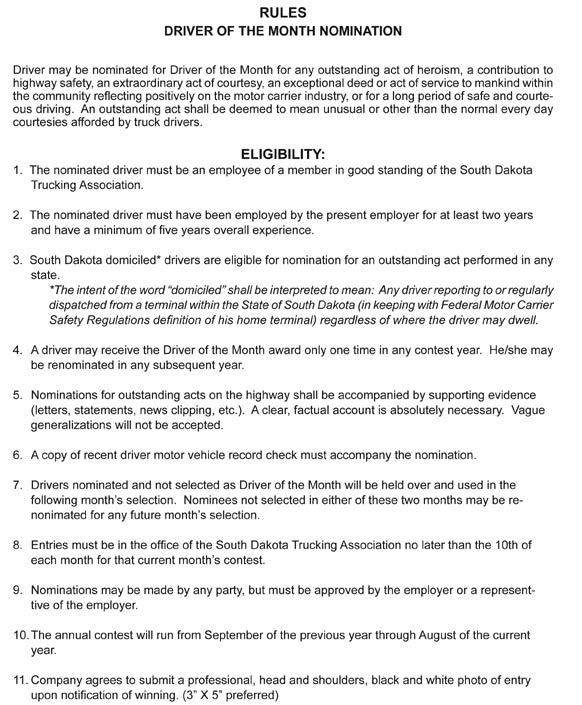
11 minute read
A White Paper on Amendment A
A WHITE PAPER ON AMENDMENT A Making Recreational Marijuana Legal by Putting it into the Constitution of South Dakota
• Not needed for medical marijuana – that’s on the ballot as IM-26 • More use by youth – gives access to marijuana to more than 600,000 adults • Puts pot in the constitution – can only be changed by another election
Advertisement
There are three ballot measures that are on the general election ballot this November. One will allow people to wager on sporting events; the other two deal with marijuana. Amendment A would amend the State’s Constitution to legalize recreational marijuana for use by anyone 21 years of age or older. Initiated Measure 26 (IM-26) would allow the use of marijuana for medical purposes and allow those that have been authorized by a physician to have access to limited products designed to help with selected medical conditions.
How Did These Questions Get On TheBallot
Here is how Amendment A – legalizing recreational marijuana – was placed on the ballot • September 11, 2019 - Authorized to gather signatures • November 4, 2019 - Signatures submitted • January 6, 2020 - Signatures validated Secretary of State Media Release – Secretary of State Steve Barnett announced a petition submitted for an amendment to the South Dakota Constitution was validated and filed by his office today. The measure will be titled Constitutional Amendment A and will appear on the 2020 General Election ballot on November 3, 2020. A constitutional amendment currently requires 33,921 valid signatures in order to qualify for the ballot. “As outlined in South Dakota Codified Law § 2-1-16, our office conducted a random sample of the petition signatures and found 68.74 percent to be valid,” stated Secretary Barnett. Based on the results of the random sample, 36,707 signatures were deemed valid. Here’s how IM-26 – allowing marijuana for medical purposes – was placed on the ballot • August 15, 2019 Authorized to gather signatures • November 4, 2019 - Signatures submitted • December 19, 2019 - Signatures validated Secretary of State Media Release – Secretary of State Steve Barnett announced the petition submitted for an initiated measure on legalizing marijuana for medical use was validated and filed by his office today. It will be titled Initiated Measure 26 and appear on the 2020 General Election ballot on November 3, 2020. An initiated measure currently requires 16,961 valid signatures in order to qualify for the ballot. “Per South Dakota Codified Law § 2-1-16, our office conducted a random sample of the petition signatures and found 74.65 percent to be valid,” stated Secretary Barnett. Based on the results of the random sample, 25,524 signatures were deemed valid. Medical Marijuana has been on the ballot twice; defeated both times • 2006 IM-4 Failed The vote: 157,953 (47.7%) Yes – to – 173,178 (52.3%) No • 2010 IM-13 Failed The vote: 115,667 (36.6%) Yes – to – 199,522 (63.3%) No Out of state help. The Marijuana Policy Project (MPP) out of Massachusetts, along with the New Approach organization from Washington DC are providing critical support to both Amendment A and IM-26. Most notably they have provided more than $900,000 of support for the drafting of Amendment A and for the gathering of signatures for both measures. It is anticipated that MPP will provide a million or more for the actual campaigns. What Amendment A Does Here is the Attorney General Explanation that appeared on signature forms and will appear on the ballot: Explanation: This constitutional amendment legalizes the possession, use, transport, and distribution of marijuana and marijuana paraphernalia by people age 2I and older. Individuals may possess or distribute one ounce or less of marijuana. Marijuana plants and marijuana produced from those plants may also be possessed under certain conditions. The amendment authorizes the State Department of Revenue (“Department”) to issue marijuana- related licenses for commercial cultivators and manufacturers, testing facilities, wholesalers, and retailers. Local governments may regulate or ban the establishment of licensees within their jurisdictions. The Department must enact rules to implement and enforce this amendment. The amendment requires the (continued on page 27)
Legislature to pass laws regarding medical use of marijuana. The amendment does not legalize hemp; it requires the Legislature to pass laws regulating the cultivation, processing, and sale of hemp. The amendment imposes a I5% tax on marijuana sales. The tax revenue will be used for the Department’s costs incurred in implementing this amendment, with remaining revenue equally divided between the support of public schools and the State general fund. Judicial clarification of the amendment may be necessary. The amendment legalizes some substances that are considered felony controlled substances under current State law. Marijuana remains illegal under Federal law. Revenue. Bottom line is that the excise tax and sales taxes along with incarceration savings are projected to bring net revenues in 2024 of $29 million dollars. That’s going pretty deep into the weeds as they say. Some of the Provisions • Must be 21 to use or be involved in the business of marijuana • Cannot operate car, train, aircraft, boat, while “under the influence” • Cannot smoke marijuana in places that smoking is otherwise banned • Local governments issue licenses for marijuana businesses and can refuse to allow licenses in their city. Amend- ment protects private use in towns with no licenses for businesses. • Claims to protect the rights of employ- ers to ban use of marijuana as part of employment policy, to refuse to hire anyone that fails a drug test and to fire people for violation of that policy • Prohibits undertaking any task that would constitute negligence or mal practice while “under the influence” of marijuana • Limits civil penalties for underage use or distribution to $100 or 4 hours of drug education (perfect example of something that cannot be changed without a statewide vote if this is added to the Constitution) • Contains this provision “No contract is unenforceable on the basis that mari- juana is prohibited by federal law.” This applies to protecting professiona licenses for providing advice and services related to marijuana because it is against federal law. Reasons to Oppose Amendment A Devastation to Workforce. To quote a board member of the South Dakota Chamber of Commerce and Industry, “We can’t find anyone that can pass a drug test now; you make pot legal and we won’t have a workforce.” The idea of businesses not being able to find qualified workers to get things done is a real threat that business leaders know all to well. While Amendment A says businesses can refuse to hire people that fail a drug test now, the States of New York and Nevada have recently passed laws that prohibit that very activity; meaning businesses can no longer use a failed drug test as a reason to not hire an applicant. How is the public going to react when they learn something like “If you’re mad about waiting two days for a plumber, legalize pot and you’ll wait two weeks.” National Institute on Drug Abuse – employees who tested positive for marijuana had 55% more industrial accidents, 85% more injuries and 75% greater absenteeism compared to those who tested negative. Also impacting the bottom line are: • Decreased productivity • Increased worker comp & unemploy- ment comp claims • High turnover • Lawsuits
Puts young people at risk. Amendment A allows marijuana use by people that are 21 years of age and older. There are 617,000 people that will have legal access to marijuana. It just follows that increased exposure to marijuana will result in increased use by young people. There is a body of evidence that supports this conclusion. The Official Journal of the American Academy of Pediatrics in 2019 • Various states have legalized mari- juana for medical purposes and/or decriminalized recreational marijuana use. These changes coincide with a decrease in perceived harmfulness of the drug and an increase in its use among youth. This change is of critical concern because of the poten- tial harmful impact of marijuana exposure on adolescents.
The Truth Initiative, a nonprofit formed to help people quit using tobacco and vaping products published this analysis that has several conclusions: • Two studies in Washington, where recreational marijuana use is permitted, have found both an increase and a decrease in youth use. A more recent national study found that legalized adult marijuana use for non-medical purposes has resulted in an increase in youth use of around 11%. At the same time, though, adult use in states with legal marijuana has clearly increased. Increase in fatal auto accidents. Marijuana is an intoxicating substance, period. It impairs people’s ability to operate motor vehicles, heavy machinery and boats. It will illegal to drive under (continued on page 28)
the influence of marijuana, just like it is to be driving after drinking . . . and yet, many people are guilty of breaking that law. They are going to drive while under the influence of marijuana as well. Published in Forbes from the Governor’s Highway Safety Association, Traffic Safety Impacts of Marijuana Legalization: • The GHSA’s guide, for example, looked at four studies on the topic, and found that two indicated that crashes increased at similar rates to control states without legalized recreational marijuana, and two others (including the recent Insurance Institute study) showed that crashes increased at a higher rate than the control states. • There are no firm conclusions on whether crash rates changed in either state; • Fatal crashes involving marijuana increased in both states since legal- ization • Surveys in both states showed that many regular marijuana users believe that marijuana doesn’t affect their driving. Most regular users will drive “high” frequently. Doesn’t belong in the Constitution The only way to change any of the provisions of Amendment A if it passes will be to put it back on the ballot for another election. That only happens every two years and is expensive. Laws like legalizing marijuana belong with the Legislature. Amendment A should not be part of the Constitution for many reasons including: • If change is needed (1oz limit/$100 penalty), another election is required – inflexible and expensive to change • Alcohol and tobacco are not regulated in constitution, why marijuana? • Legislature is the proper venue for these decisions - Legalized hemp and CBD oil after resistance from the Governor • Proponents claim Amendment A is needed because the legislature repealed IM-22. This is a myth – the Legislature passed most of the provi- sions of IM-22 including an account- ability board, limits on gifts, limits on former legislators working as lobby- ists. The Coalition working to defeat Amendment A The NO Way on Amendment A ballot committee is looking for business and other groups to defeat Amendment A. Those that have firm commitments to this point include: • Association of General Contractors (AGC) • Greater Sioux Falls Chamber of Commerce • South Dakota Association of Coopera- tives • South Dakota Association of Health- care Organizations (SDAHO) • South Dakota Chamber of Commerce & Industry • South Dakota Farm Bureau • South Dakota Retailers Association For a current list of coalition members working to defeat Amendment A visit the website www.NoWayOnA.com There is a national organization opposed to passage of marijuana laws. Smart Approach to Marijuana (SAM) out of Colorado is looking to be involved in this issue and has offered to either work as part of our coalition or work as a parallel campaign. They worked in parallel in North Dakota two years ago and helped defeat a recreational use ballot measure there. Conclusion In summary, here are the key points that make the case why Amendment A should NOT become part of the South Dakota Constitution. • Not needed for medical use - medical marijuana is on the ballot – those wishing to allow marijuana for medici- nal purposes can vote for IM-26 - IM-26 may solve some prob- lems - Amendment A creates many problems
• There will be consequences – increased use by young people more from increased exposure • Fatal accidents will increase with people driving under the influence of marijuana • This effort is South Dakota people pushing against millions $$$ from Massachusetts • Keep it out of the Constitution – there is NO Way this belongs in the consti- tution • Join the growing coalition – NO Way on AMENDMENT A - NO WAY
4928 N CLIFF AVE. SIOUX FALLS, SD 57104
(605) 444-8820
workFORCEOH.com
7600 S MINNESOTA AVE. SIOUX FALLS, SD 57108 (605) 271-9000
In and Out. On the Road.

Quick and easy scheduling for truck drivers at two locations. WorkFORCE provides:
• Workers compensation injury care • In clinic nursing and MD services • Industrial exposure follow-up and physicals • Pre-employment, fit-for-duty and return-to-work exams • Customizable lift tests, hearing and vision exams • Beginning-to-end claims management • Physical therapy • DOT and Non-DOT Drug screening programs • Random UDS Generation • Breath Alcohol Testing
Quick. Simple. Eff icient.
Call today to set up your free consultation!
DOT PHYSICALS

n Nationally Registered Certified Medical
Examiners n Physicals Available Same Day n All DOT-Mandated Paperwork Completed n Same-day Verification of Medical
Certificate n Convenient and Affordable n Complimentary Reminder Notification of
DOT Renewals
For appointments and further information, please contact...
1900 Grasslands Drive Mitchell, SD 57301 1-605-995-5701 www.Avera.org/OccMedMitchell








